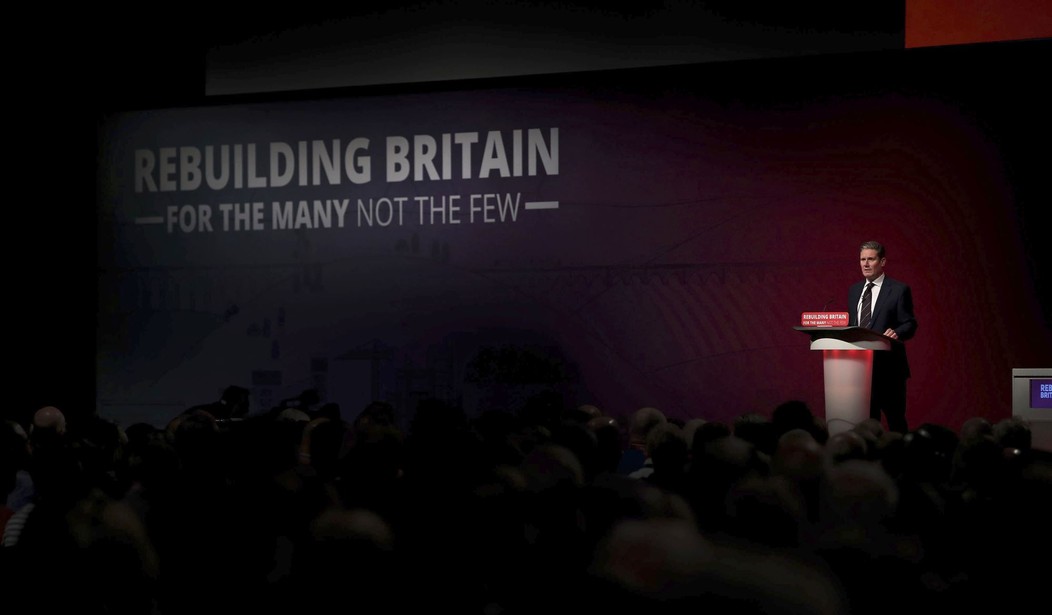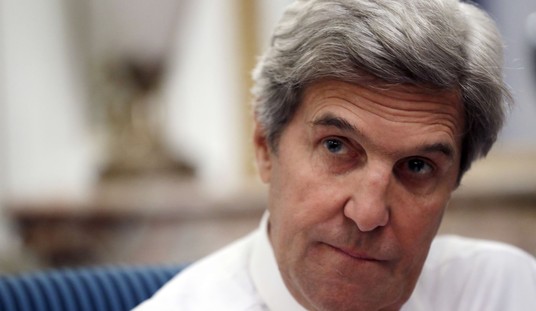Last week, the British government declared globalization dead after Donald Trump’s tariffs had disrupted the international trade status quo. “Chief Secretary to the Treasury Darren Jones said the era of globalisation has 'ended' following Donald Trump's new tariffs. It comes after Prime Minister Sir Keir Starmer suggested in a Sunday Telegraph article he was about to announce state intervention to protect UK firms from the US president's move.”
The Starmer government did admit that Donald Trump had some cause to worry about the deindustrialization of the West. “Trump has done something that we don’t agree with but there’s a reason why people are behind him on this,” a Downing Street official told The Sunday Times. The stage was set to denounce the new administration.
Little did the British Labour Party suspect that the blow would fall not from Washington, but Beijing. In a dramatic sequence of events, Parliament was recalled to save the last remaining steel factory in Britain, once the cradle of the industrial revolution. British Steel, now owned by China’s Jingye corporation, was scheduled to close in mere days. This was something the British establishment could not abide.
The British government moved swiftly on Saturday to take control of operations at the country’s last large crude steel producing facility, in what appeared to be a major step toward nationalizing the plant.
In an unusual and dramatic move, the government had summoned lawmakers back from vacation on Saturday to approve the government’s emergency legislation.
The government said it was acting to prevent the owners of the British Steel complex in Scunthorpe, a Chinese company called Jingye, from taking steps unilaterally to close the blast furnaces, potentially costing 2,700 jobs.
Jingye argued – and none in Britain demurred – that it was losing £700,000 a day in the plant trying to make steel with ridiculously expensive Green, net-zero energy and wanted to close it. The British, facing the humiliation of closing an industry they had invented, offered the Chinese money. But they scoffed at the pittance.
Why not just import the steel made more cheaply from China? That’s what a globalist would do. In China, all the component industries to make steel were thriving: coke mines, abundant, and electricity that is only 27% as expensive as Britain’s, as a result of Net Zero policies.
But here pure trade becomes naval. One of the ironic aspects of the British Steel saga is that replacement imports from China must go through the Indian Ocean, the Red Sea, and the Suez Canal to UK ports like Felixstowe or Southampton, or around South Africa’s Cape of Good Hope. It must transit the very same Red Sea that European navies are incapable of securing against Houthi antiship missile attacks, presently held open by the U.S. Navy. The German navy made the news in late 2024 when one of its superfrigates avoided the Red Sea because it could not safely run the Houthi gauntlet.
According to theory, Egypt should protect the Suez and Europe the Red Sea. In reality, the problem has been left to the U.S. Navy. But "the world," although unwilling to pay for protection against pirates, is more than willing to fight climate change. Shipping companies will have to pay for the CO2 produced by their vessels under new rules by the UN’s maritime watchdog.
Nobody fully reckoned with the combined perverse effects of ideological environmentalism. British Steel, which has become uneconomical due to high power prices from Net Zero, must eventually be replaced by shipping that must pay a Net Zero tax, none of which pays the U.S. Navy for the trouble of keeping the sealanes to China open. What if Trump stopped patrolling the Red Sea? What if China stopped selling the UK steel?
Nor did the drama end with the Labour government’s decision to prop British Steel up. Britain found it had no coking coal to keep the last steel blast furnaces going before they cooled solid. "The government said work was under way on Monday to obtain the coking coal and iron ore that power the plant's two furnaces." This was supremely ironic. Back in November 2024, Starmer's government banned new coal mines as "a signal to the world." According to Wikipedia, there were only 360 coal miners left in the UK in 2022. Now the banned substance was needed and there was literally none to be had.
Almost absurdly, some of the precious carbon was found, and Starmer’s ministers considered deploying the Royal Navy to escort a vital fuel shipment to Scunthorpe's steelworks! “The move would ensure what's said to be a cargo of coking coal reaches the UK without being intercepted or redirected — as without fresh supplies, the furnaces would burn out and be nearly impossible to restart.”
Starmer’s end of globalization did not take the form of the Trump tariffs, which he was prepared to denounce, but the cascading failures of offshoring and runaway environmentalism, which forced Parliament to reconvene to keep an iconic British industry open by paying its Chinese owners a subsidy. It exposed the interlocking policy mess created by Western political orthodoxy. Maybe there was merit to shaking it up. As one British MP put it, Woke policy was hit in the face with the perfect boomerang:
Life comes at you fast. In November Ed Miliband is on the net-zero front foot, banning new coal mines including one for coking coal. By April he’s spending millions on imported coal and the Government are recalling Parliament to nationalise British Steel.
British Steel is a microcosm of the contradictions of the global world. Its farcical, tragic, and absurd features are a reminder that international trade is not some abstract mathematical system, but constituted of human beings, some venal, some stupid, who bear upon the prosperity and security of nations. It must deal with morons, ideologues, and terrorists.
Tariffs may not be optimal or even rational as a formal system. But they may have some merit in adjusting the power systems in a world run by very imperfect people, like a policy of the second best. Maybe tariffs are not the complete answer to the problems of globalization, but the West has to do something.










